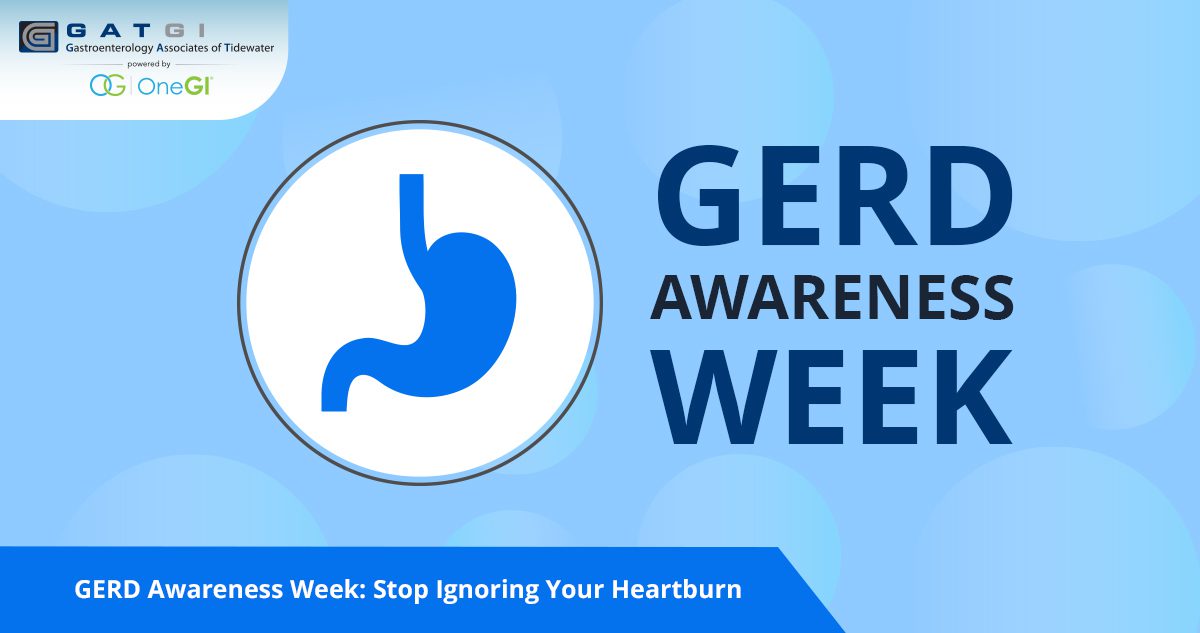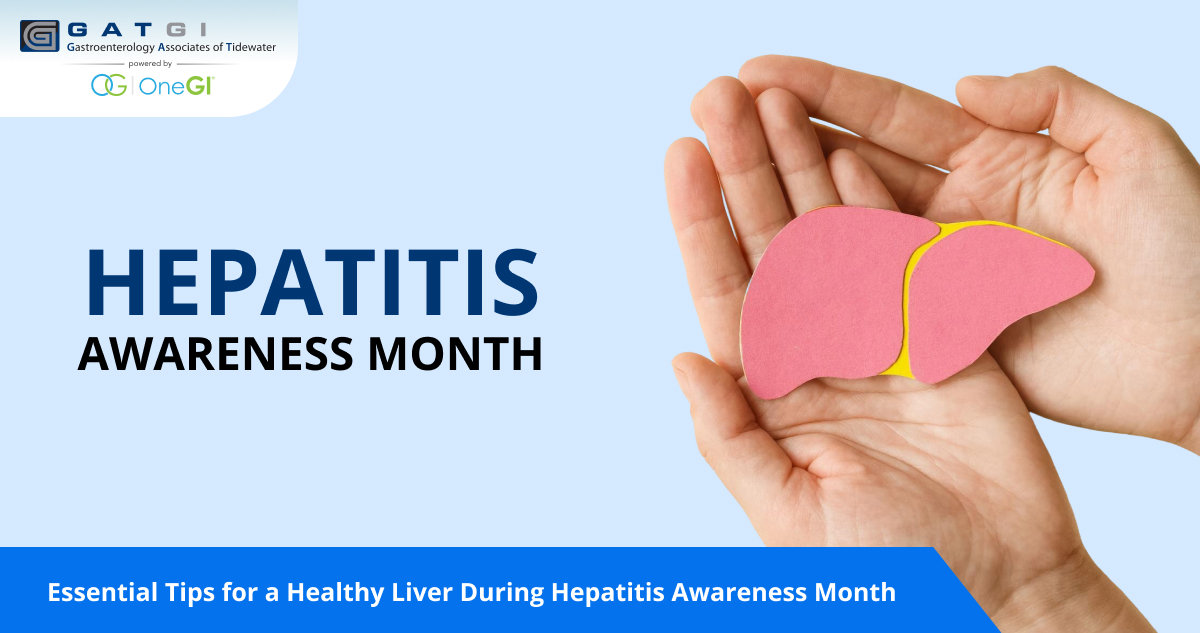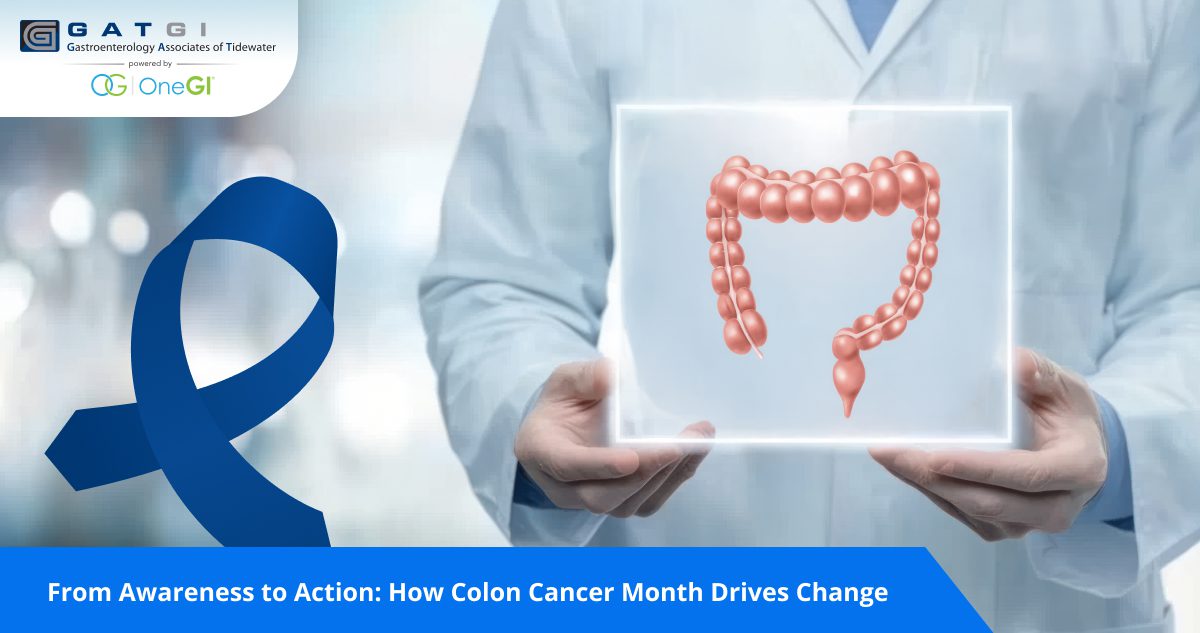Heartburn is uncomfortable and frustrating and affects many people. But did you know that frequent heartburn could be a sign of something more serious? Gastroesophageal reflux disease (GERD) is a common gastrointestinal condition that causes discomfort, with heartburn being one of its symptoms, and poses potential health risks. GERD Awareness Week is an important time to shed light on this condition and offer education and support to those affected.
Understanding GERD
GERD is a chronic condition characterized by the frequent backflow of stomach acid into the esophagus. This GERD heartburn and acid backwash irritate the esophageal lining, leading to discomfort and various symptoms.
Symptoms and Common Triggers
In addition to heartburn, common symptoms of GERD include:
- Regurgitation: The backflow of stomach contents into the mouth or throat, causing a sour or bitter taste.
- Chest Pain: A burning sensation or discomfort that can mimic the feeling of a heart attack.
- Difficulty Swallowing: Known as dysphagia, this can feel like food is stuck in the throat.
- Sensation of a Lump in the Throat: Also called globus sensation, it feels like there is something stuck in your throat.
What foods trigger GERD can vary, but common culprits often include:
- Spicy Foods: These can irritate the esophagus and increase acid production.
- Chocolate: Contains caffeine and theobromine, which can cause the muscle at the bottom of the esophagus to relax.
- Caffeine: Found in coffee and tea, it can exacerbate acid reflux symptoms.
- Alcohol: Can increase stomach acid and cause the muscles at the bottom of the esophagus to relax.
- Large Meals: Eating too much at once can increase pressure on the stomach, promoting reflux.
The Dangers of Ignoring Heartburn
Ignoring persistent symptoms such as heartburn can lead to serious complications. Untreated GERD may progress to esophagitis, which is inflammation of the esophagus. This can result in Barrett’s esophagus, a condition where the esophageal lining changes and increases the risk of esophageal cancer. Early detection and treatment are crucial.
Managing GERD
Managing GERD involves a combination of lifestyle changes and medical interventions to alleviate symptoms and prevent complications. By making informed dietary choices, modifying certain habits, and working with healthcare professionals, individuals can effectively control GERD and improve their quality of life.
Lifestyle Changes
Implementing lifestyle changes is a pivotal step in managing GERD symptoms and minimizing flare-ups.
- Smaller, Frequent Meals: Eating smaller meals more often can prevent the stomach from becoming too full, reducing the pressure on the lower esophageal sphincter (LES) and minimizing reflux episodes.
- Avoid Lying Down After Eating: Remaining upright after meals helps gravity keep stomach contents from flowing back into the esophagus, reducing heartburn.
- Elevate Head While Sleeping: Raising the head of the bed by six to eight inches can prevent nighttime reflux by using gravity to keep acid in the stomach.
- Weight Loss: Shedding excess weight, especially around the abdomen, can decrease the pressure on the stomach and LES, reducing GERD symptoms.
- Quit Smoking: Smoking can weaken the LES, increasing the likelihood of acid reflux, so quitting can help improve symptoms.
Medications
Medications play a crucial role in managing GERD by reducing stomach acid, healing the esophagus, and providing relief from discomfort.
- Antacids: These over-the-counter medications neutralize stomach acid, providing quick relief from heartburn and discomfort.
- H2 Blockers: These reduce acid production and can provide longer-lasting relief than antacids by blocking histamine receptors in the stomach lining.
- Proton Pump Inhibitors (PPIs): These are more potent acid reducers that block the enzyme responsible for acid secretion in the stomach, effectively relieving GERD symptoms and promoting healing.
- Consult A Healthcare Provider: Personalized treatment plans from a healthcare provider such as a board-certified gastroenterologist ensure that medication use is safe and effective, tailored to individual needs.
Diet and Stress Management
Understanding how diet and stress management help manage GERD is crucial, as choosing the right foods and learning what to drink with acid reflux can significantly alleviate symptoms and decrease the frequency of flare-ups.
- Low-Fat Meals: Opting for low-fat meals reduces stomach acid production and lessens the likelihood of reflux.
- Avoid Trigger Foods: Foods like citrus, tomatoes, and fatty foods are known to exacerbate GERD symptoms, so avoiding them can help manage the condition.
- Stress Management Techniques: Practices like yoga, meditation, and regular exercise can reduce stress, which may otherwise worsen GERD symptoms by affecting digestion and LES function.
For more insights on discovering what triggers GERD and how to manage it effectively, be sure to read this insightful blog: Discovering What Triggers GERD and How to Manage It.
Taking action against persistent heartburn can significantly improve your quality of life. By addressing GERD symptoms early, you can avoid potential complications down the road. Don’t hesitate to seek professional help for gastrointestinal disease treatment if heartburn persists.
Share this post to raise awareness during GERD Awareness Week. Your health and well-being are important! If you have any GI health concerns, consider scheduling an appointment with Gastroenterology Associates of Tidewater. They have convenient locations in Virginia Beach and Chesapeake and can be reached at (757) 547-0798.






